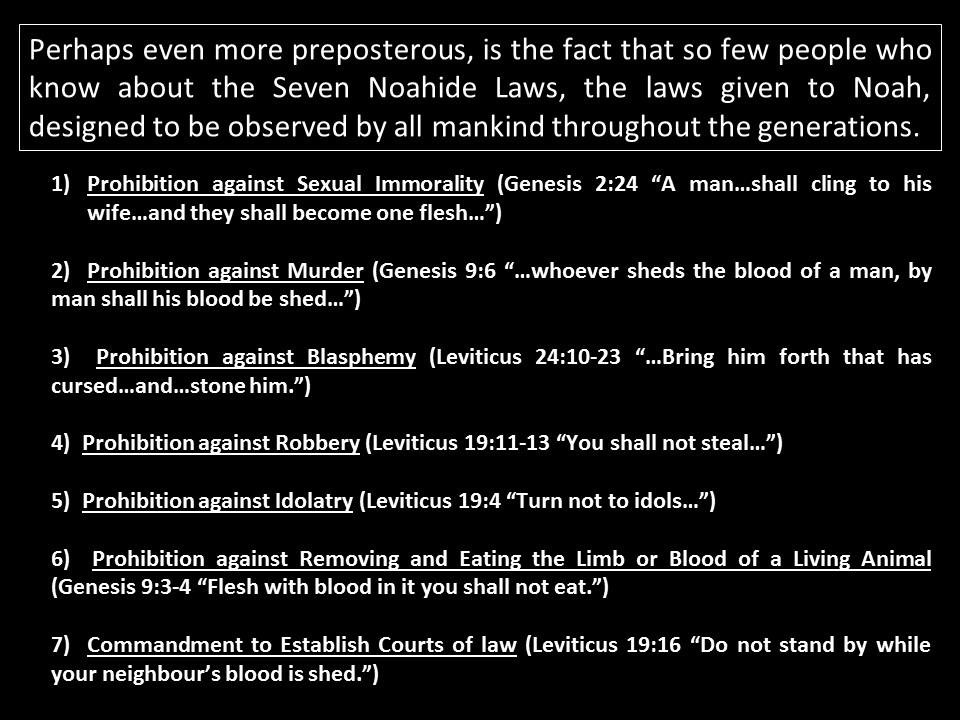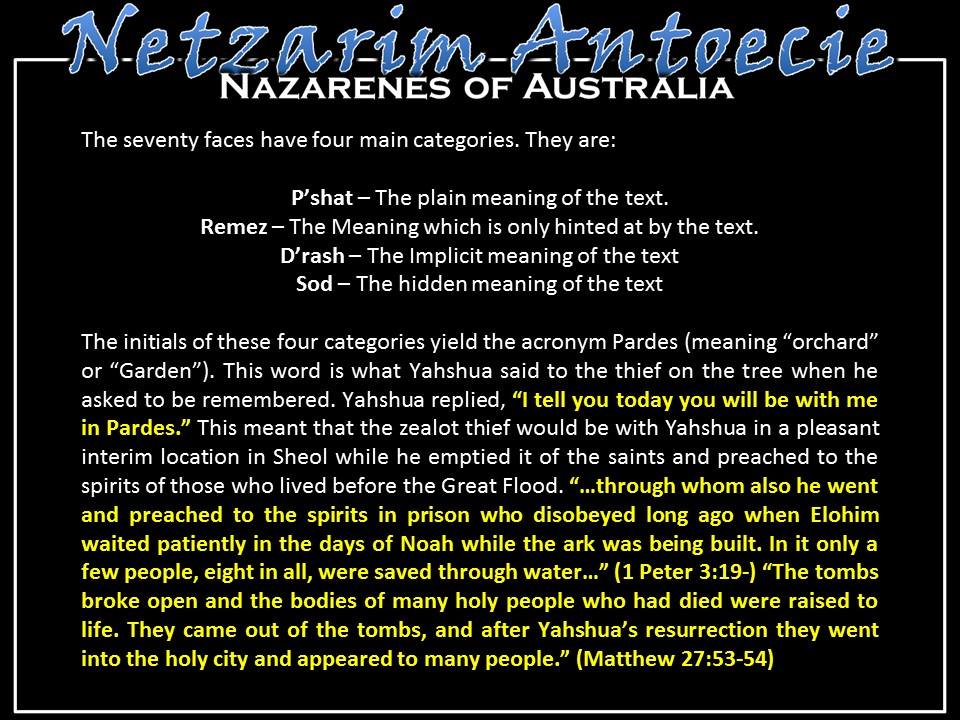Video Teaching
Audio Teaching
Study Notes and Slides
The Obligations of the Student
Introduction: What’s an obligation? An obligation is an act or course of action to which a person is morally or legally bound; a duty or commitment.
No one would argue that if the Creator’s promises are true that a person who embraces Him is without any obligation to do anything that this Creator tells us to do. The laws of nature are such that a lot of what a person does is already set up to show the immediate fruits of good actions. It’s the Creator’s requirements that don’t seem to impact the immediate laws of nature that have been relegated to a quirky religion called Judaism by the masses.
Most people think that refraining from keeping Shabbat is not as bad as murdering someone. This is not true. Merely, the consequences of not keeping Shabbat have a delay that the act of murder does not.
When it comes to pleasing the Almighty, most people who profess to do such a thing, are not motivated by obligation and the concept of being a student in the field of learning to please Him is foreign to them.
What is a student? A student is a person who is formally engaged in learning. Our learning of Torah, the Creator’s instruction, should take some sort of formal routine. It has to be established in a person’s life as much as the requirement to eat regularly and work a regular job.
The Hebrew word for student is Talmid תלמיד. Talmid means “taught one.”
The decision to follow a rabbi as a talmid meant “total commitment” in the first century as it does today. This word carries the root tamid is generally translated as "always" in the context of a "continuous offering." Being a talmid of Yahshua is an ongoing endeavour.
Many religions that claim to follow Scripture tend to focus on the Creator’s obligations toward the believer. Today, grace is generally taught in such a way that it sets the backdrop for a spiritual walk that remains fixated on what the Almighty does for us rather than what we can do for Him. The result is a believer bereft of motivation and willpower. Why strive for depth of understanding when the only focus is on being saved? As a true believer, we should not solely focus on making the grade to be saved, but on drawing closer to the Heavenly Father with every effort we can muster. In the same way a marathon runner does not focus on his initial burst at the starting line, a true believer moves forward governing himself appropriately as the grade and challenges of the run changes. All the while, just like a runner, he visualises the finish and gives no thought to his achievement in commencing the run. So as believers in Messiah, what should we be learning, thinking and doing and what should we be teaching others to learn, think and do?
Ultimately, He is the Creator and He does not require mortal man to keep tabs on His performance as if He might fall short in some way.
“Elohim is not human, that he should lie, not a human being, that he should change his mind. Does he speak and then not act? Does he promise and not fulfill? (Numbers 23:19)”
What about what we should be doing?
What does the word say? “And what does Yahweh require of you? To act justly and to love mercy and to walk humbly with your Elohim. (Michah 6:8)”
This is great advice, however, this is all abstract. How do we apply all this? On top of that, is there anything else we need to do? Yes.
“Love Yahweh your Elohim with all your heart and with all your soul and with all your strength. (Deuteronomy 6:5)”
“…you shall love Yahweh your Elohim with all your heart and with all your soul and
with all your mind and with all your strength. (Mark 12:30, Luke 10:27)”,
…this is love for Elohim: to keep his commands. And his commands are not burdensome (1 John 5:3)”
Most people think love is something one "falls into," something out of one's control, something that cannot be helped. There is a huge misconception about what “LOVE” is, even among Netzarim. There is only one kind of love, Ahavah in Hebrew, the root of which is Hav, which means “to give.” There are three aspects or affections of this love.



































